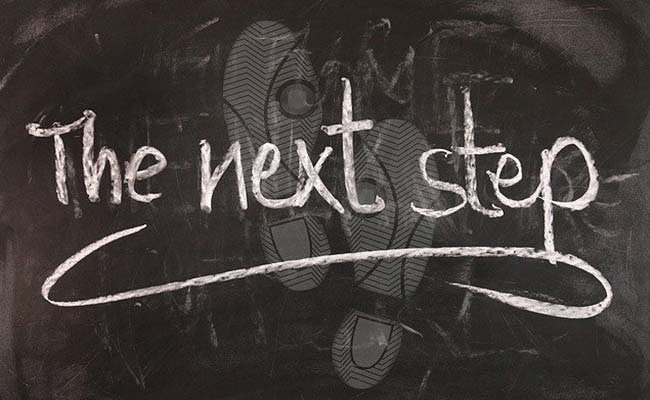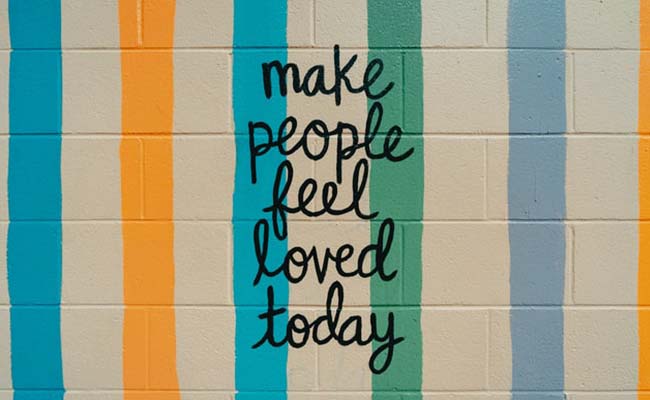Change can be particularly hard to accept when it is forced upon you.
There you were, happily getting on with your life in the key of C, avoiding the black notes and keeping things simple.
Then, suddenly a big part of your life is uprooted and you are being asked to do things differently. But you don't want to.
Change is usually positive when it is something we have been longing for or striving towards. But when it comes out of the blue, because it is unknown territory, it can be quite daunting, and even upsetting.
Change is negative when it affects our well-being, and when it disrupts our routine and day-to-day interaction with the world.
Change comes in many guises:
- Your partner breaks up with you.
- You get made redundant.
- You are asked to change role at work, or adapt to a new system.
- You are forced to stop doing something you love because of illness or injury.
- Your child leaves home and suddenly the house is quiet and lonely.
- You're getting older and finding you can't keep up with doing all the things that used to enjoy.
Change can be a tough pill to swallow. And on the face of it adapting seems hard.
There's only one solution, though. And that is acceptance. However, there is another option, resistance…

Resistance to Change
In some circumstances you can resist change by putting off the inevitable and not complying with the expectations and demands being put upon you.
You can get into arguments and debates, avoid the relevant people and stall for time.
But where the major areas of our life are concerned – work and relationships – when major change happens there is generally no going back.
Even when things have changed and you are getting on with it, the resistance can still exist in your mind. It becomes a plague that begins to affect your health.
Previously you were enjoying your daily routine, and now you are living reluctantly and resentfully.
You're stuck in the past, thinking how much better things were before and how much you would like to have your old life back.
So even though change has taken place, mentally, you haven't moved on.
Depending on how much this change has affected your life, you may be experiencing one of the following:
- Sleepless nights
- Spontaneous crying
- Feeling isolated
- Negative thoughts
- Feeling sad
- Experiencing anxiety and stress
At this point you have to question: is it the change that is causing these emotions and feelings, or your resistance to the change and inability to move on and adapt?
In the beginning it would be mostly the shock of change, but as time moves on the cause shifts to lie with your resistance.
The reality is that things are not going to go back to how they were before. You need to adapt to this change, and the way to do this is through acceptance.
Acceptance of Change: The Key to Adaptation
Acceptance may seem like an enemy, like you are losing, like you are just lying down and allowing this change to take over your life without putting up a fight.
Depending on the circumstances surrounding the change, you may already have spent a long time fighting, though there might be scope to keep going and prevent change for the better.
I don't know your exact situation. Though what I can tell you about is the positive side of acceptance.
When there is no going back – think of football player whose career is ended through injury, or a woman whose husband has left her for someone else, or someone who has lost their job at the company after 20 years of service – at some point there has to be acceptance.
At some point you have to draw a line in the sand and move forward.
When you do this, opportunity starts opening itself up to you again.
You are no longer a closed book in the present, living through thoughts of the past and anxiety about the future.
You begin to align your energy with possibility.
Adapting to Survive is in Your DNA
This is the default human pathway.
The human race has survived so long because of its ability to adapt: to adapt to different climates, different food sources, and different terrains.
We humans are experts at overcoming challenges, finding solutions to problems, and evolving to do things more effectively and efficiently.
So despite how sad you feel, or how reluctant you are to embrace change and move on, know that your ability to do this is rooted in your DNA.
This is the reason why when you do accept change and begin to adapt, you will feel more positive within yourself and start to thrive again.
To revisit the examples above:
- The football player will become a coach, a community leader or some other inspirational role in society.
- The woman will find strength in her independence and/or her children.
- The employee will find a new job and be valued for his or her experience in a new role.
When you choose to adapt, you discover new strength and resilience. Your world opens up as you meet new people, find new interests, discover new talents.
Accepting and adapting to change can be the making of you.
Final Note
To adapt to change you need to fully accept it. If you resist your life will stand still. You'll be existing but not moving forward and thriving.
Humans have always had to adapt to survive. You have the choice to do the same.
Look on the bright side…
This is a new beginning.
This is a chance to reinvent yourself.
The is a new chapter.
Embrace it and invest in the new you.
I've got a funny feeling you'll look back and say “That happened for a good reason”.





Jess[ica] Meiam says
When my life gets hard and/or my mind starts spinning and overanalyzing my situation I have visited your site to bring me back to centered. Each time I find a piece of writing that not only speaks to me but about me so thoroughly its uncanny. I haven’t blogged in months because I started sec on HD guessing everything I write and it was becoming more stressful than therapeutic which nullifies the point of writing for me. I miss it. Thank you for being so consistently on point for my life exactly when I need it the most!! It may mean little to you but it means the world to me. So again thanks!!
Alfred James says
Thank you for your kind words Jessica. I totally empathize with this. I only write here when I really feel inspired, which is usually when something happens in my own life and I feel compelled to write about it. Doing so helps me make sense of it and release the thinking; it is as much therapy for me as anyone who reads it and gets something from it.
Fortunate Mavangwa says
Change is beautiful only if you embrace it, in the midst of this pandemic many businesses are closing down. 1 of the many reasons is not opening room for new ideas, adapting to the new normal and moving with times.
We are in a time whereby everything is going digital so if you can’t embrace that you’ll be left behind.
Nature enforces change, but for change to be effective you need to adapt.
Take the new normal and excel in it. This pandemic can either build or break you, it’s your choice, choose to adapt and prosper!
sh says
I have had heartbroken from the January 2020, in April my Mom was left, and in September my father was left. I feel so sad from beginning of year until now I use many different ways I cannot overcome. I cannot sleep well. I have deep depress feeling nothing make me happy. Meanwhile I am alone and suffer from lonely. I have no idea how to return the happy time to my life. I want to create a balance in life and get out in this horrible situation.